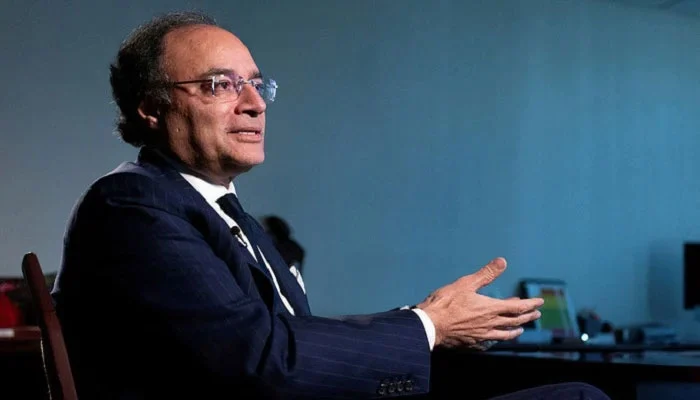Federal Minister for Finance Muhammad Aurangzeb announced on Thursday that artificial intelligence (AI) will be used to enhance tax collection.
Speaking at the conference “Retail Reimagined: Innovate, Collaborate & Thrive,” organized by the Pakistan Retail Business Council (PRBC), the minister highlighted concerns over the retail sector’s minimal tax contribution. Despite contributing 19% to GDP, the retail sector pays only 1% in taxes.
He emphasized that the disproportionate tax burden on manufacturing, services, and salaried individuals is unsustainable. “We need to bring agriculture, real estate, retail, and wholesale sectors into the tax net,” he stated, praising provincial governments for imposing agricultural taxes.
The minister stated that the government is engaging with the retail sector to formalize businesses and ensure tax compliance.
Later, while speaking to the media, he reaffirmed that AI would be used to boost tax collection.
He further revealed that Rs9.4 trillion in cash circulation must be integrated into the formal economy. While acknowledging that this transition cannot happen overnight, he stressed the government’s commitment to achieving this goal.
Discussing economic improvements, the minister pointed out that currency stabilization, increased foreign reserves, and reduced inflation have strengthened macroeconomic stability. Additionally, the policy rate has significantly decreased, bringing Kibor down from 23% to around 11%.
He further stated that structural reforms in taxation, energy, state-owned enterprises (SOEs), and public finance are underway.
IMF Mission’s Visit to Pakistan
The minister disclosed that the International Monetary Fund (IMF) mission will visit Pakistan on February 24 to discuss the Climate Resilience Fund, with Pakistan expecting to receive $1 to $1.5 billion in funding.
Another IMF team will arrive in March for a six-month review under the $7 billion Extended Fund Facility (EFF).
Highlighting economic progress, the finance minister noted that Pakistan’s current account posted a surplus of $682 million in the first seven months of FY25, marking a sharp turnaround from the $1.801 billion deficit in the same period last year.



